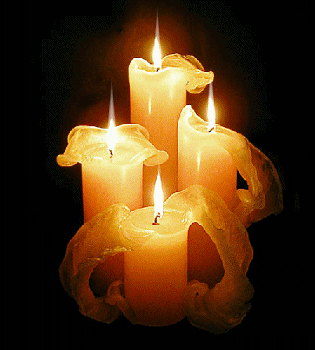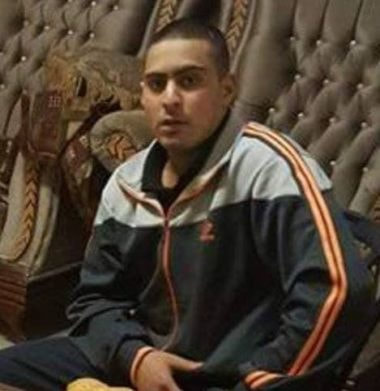25 dec 2018
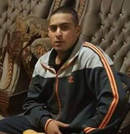
The funeral of Qassem al-Abbassi, the teen killed by Israeli forces, on December 20, 2018, was held Monday night, in the town of Silwan, in occupied East Jerusalem.
The Palestinian men were carrying the teen’s body on their shoulders, from the Silwan mosque, and many of the mourners shouted criticism regarding the death of the teen, and chanted for the liberation of Palestine, the Wadi Hilweh Information Center (Silwanic), has reported.
Walking behind an ambulance, the funeral procession was blocked by Israeli forces, whom instructed the mourners to return the body of the teen to the ambulance, and to stop chanting slogans. video video
Israeli forces threatened not to allow the teen to be buried at the cemetery of Bab al-Rahma, at the eastern wall of Al-Aqsa Mosque.
According to Silwanic, although the mourners complied with the orders given by Israeli soldiers, they were assaulted and attempts were made to block the funeral procession from entering Al-Aqsa mosque in the Old City of Jerusalem.
The mourners were forbidden from raising flags or banners at the funeral, and were eventually allowed to enter the Al-Aqsa Mosque with the body of the slain Palestinians, and later went to the cemetery, amidst extensive Israeli military presence.
The Palestinian men were carrying the teen’s body on their shoulders, from the Silwan mosque, and many of the mourners shouted criticism regarding the death of the teen, and chanted for the liberation of Palestine, the Wadi Hilweh Information Center (Silwanic), has reported.
Walking behind an ambulance, the funeral procession was blocked by Israeli forces, whom instructed the mourners to return the body of the teen to the ambulance, and to stop chanting slogans. video video
Israeli forces threatened not to allow the teen to be buried at the cemetery of Bab al-Rahma, at the eastern wall of Al-Aqsa Mosque.
According to Silwanic, although the mourners complied with the orders given by Israeli soldiers, they were assaulted and attempts were made to block the funeral procession from entering Al-Aqsa mosque in the Old City of Jerusalem.
The mourners were forbidden from raising flags or banners at the funeral, and were eventually allowed to enter the Al-Aqsa Mosque with the body of the slain Palestinians, and later went to the cemetery, amidst extensive Israeli military presence.
24 dec 2018
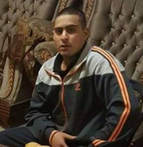
The Israeli authorities on Monday handed over the body of the Palestinian martyr Qasem al-Abbasi to his family in Occupied Jerusalem.
Quds Press said that al-Abbasi is set to be taken to his hometown, Silwan, and buried in Bab al-Rahma cemetery.
The news agency said that the Israeli police closed many roads in Ras al-Amud neighborhood and Silwan, and summoned reinforcements around the cemetery.
In the presence of the Palestinian Ministry of Heath's representative Dr. Ashraf al-Qadi, an autopsy conducted on the body of al-Abbasi at Abu Kabir Forensic Institute showed that he died of a bullet to the back that penetrated his lungs and aorta.
The Israeli occupation forces on Thursday opened fire at a Palestinian vehicle at Beit El checkpoint, northeast of Ramallah, killing al-Abbasi and injuring another Palestinian.
Al-Abbasi's family, following the incident, released a statement saying that their son was murdered, demanded a full investigation into the shooting, and called for an autopsy to be carried out.
Quds Press said that al-Abbasi is set to be taken to his hometown, Silwan, and buried in Bab al-Rahma cemetery.
The news agency said that the Israeli police closed many roads in Ras al-Amud neighborhood and Silwan, and summoned reinforcements around the cemetery.
In the presence of the Palestinian Ministry of Heath's representative Dr. Ashraf al-Qadi, an autopsy conducted on the body of al-Abbasi at Abu Kabir Forensic Institute showed that he died of a bullet to the back that penetrated his lungs and aorta.
The Israeli occupation forces on Thursday opened fire at a Palestinian vehicle at Beit El checkpoint, northeast of Ramallah, killing al-Abbasi and injuring another Palestinian.
Al-Abbasi's family, following the incident, released a statement saying that their son was murdered, demanded a full investigation into the shooting, and called for an autopsy to be carried out.
22 dec 2018
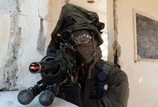
The commander of the Israeli army in the occupied West Bank, General Eran Niv, has reportedly tightened the rules of opening fire, for Israeli forces, on Friday, after a Palestinian teen was shot and killed near Ramallah, late Thursday.
According to Israeli new outlets, Niv entitled the soldiers to only open fire in life-threatening cases, Ma’an reports.
Israeli soldiers had opened fire at and killed 17-year-old Qassem al-Abbasi, after the driver of the vehicle he was riding in, with his friends, lost they way near the Beit El checkpoint, north of al-Bireh City, in the central occupied West Bank.
According to Israeli new outlets, Niv entitled the soldiers to only open fire in life-threatening cases, Ma’an reports.
Israeli soldiers had opened fire at and killed 17-year-old Qassem al-Abbasi, after the driver of the vehicle he was riding in, with his friends, lost they way near the Beit El checkpoint, north of al-Bireh City, in the central occupied West Bank.
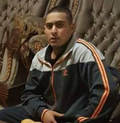
Salwa Hammad, the coordinator of the Palestinian National Committee for Retrieving Bodies of Martyrs, said that Israel has decided to autopsy the corpse of Qassem al-Abasi, 17, who was killed by Israeli soldiers on December 20th, 2018.
Hammad said that Qassem’s corpse would likely be handed back to his family for burial Sunday.
Karim Jubran, the head of the field office of Israeli Information Center for Human Rights in the Occupied Territories (B’Tselem), said that the investigations Israel sometimes carries out after killing Palestinians cannot be trusted, and only aim at burying the truth.
He added that the experience B’Tselem had in similar previous cases revealed that Israel conducts these alleged investigations in order to prevent international parties and organizations from conducting them.
It is worth mentioning that the soldiers killed Qassem, and injured two others, after opening fire at their car near Beit El military roadblock, north of the al-Biereh city, in the central West Bank governorate of Ramallah and al-Biereh.
The army claimed that the driver of the car “broke through the military roadblock,” before the soldiers opened fire at the car, seriously injuring Qassem, who succumbed to his wounds.
Palestinian sources said Qassem was in a car transporting four Palestinians, all carrying Jerusalem ID cards, and just after arriving at Beit El military roadblock, the soldiers suspected that the car “was involved in a shooting” targeting a bus station on the colonialist road #60, close to Ofra illegal colony, east of Ramallah, although the distance between Ofra and Beit El is about 2 Kilometers, and the fatal shooting that killed Mohammad took place 40 minutes later.
Hammad said that Qassem’s corpse would likely be handed back to his family for burial Sunday.
Karim Jubran, the head of the field office of Israeli Information Center for Human Rights in the Occupied Territories (B’Tselem), said that the investigations Israel sometimes carries out after killing Palestinians cannot be trusted, and only aim at burying the truth.
He added that the experience B’Tselem had in similar previous cases revealed that Israel conducts these alleged investigations in order to prevent international parties and organizations from conducting them.
It is worth mentioning that the soldiers killed Qassem, and injured two others, after opening fire at their car near Beit El military roadblock, north of the al-Biereh city, in the central West Bank governorate of Ramallah and al-Biereh.
The army claimed that the driver of the car “broke through the military roadblock,” before the soldiers opened fire at the car, seriously injuring Qassem, who succumbed to his wounds.
Palestinian sources said Qassem was in a car transporting four Palestinians, all carrying Jerusalem ID cards, and just after arriving at Beit El military roadblock, the soldiers suspected that the car “was involved in a shooting” targeting a bus station on the colonialist road #60, close to Ofra illegal colony, east of Ramallah, although the distance between Ofra and Beit El is about 2 Kilometers, and the fatal shooting that killed Mohammad took place 40 minutes later.
21 dec 2018
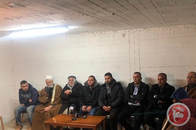
The al-Abbasi family from Silwan in occupied East Jerusalem demanded, on Friday, that an investigation be immediately opened in the circumstances of the shooting and killing their 17-year-old son, Qassem Muhammad al-Abbasi, by Israeli forces near the Beit El checkpoint in the central occupied West Bank, late Thursday.
In a press conference held by the family, on Friday morning, family elder Moussa al-Abbasi, said that what happened to Qassem is murder, and demanded an investigation into the details of the shooting.
Al-Abbasi added that the family demanded an autopsy, and that the body of Qassem be returned so that the family can have a funeral and burial for their son.
Seventeen-year-old Qassem was shot and killed by Israeli forces on Thursday night while in a vehicle at the Beit E checkpoint near Ramallah.
In a press conference held by the family, on Friday morning, family elder Moussa al-Abbasi, said that what happened to Qassem is murder, and demanded an investigation into the details of the shooting.
Al-Abbasi added that the family demanded an autopsy, and that the body of Qassem be returned so that the family can have a funeral and burial for their son.
Seventeen-year-old Qassem was shot and killed by Israeli forces on Thursday night while in a vehicle at the Beit E checkpoint near Ramallah.
20 dec 2018
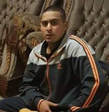
Qassem Mohammad Ali Abasi, 17
Israeli soldiers killed, on Thursday evening, a Palestinian teen from occupied Jerusalem, and injured two others, after opening fire at their car near Beit El military roadblock, north of the al-Biereh city, in the central West Bank governorate of Ramallah and al-Biereh.
Media sources said the slain teen has been identified as Qassem Mohammad Ali Abasi, 17, from Silwan town, south of Al-Aqsa Mosque in occupied Jerusalem.
The wounded Palestinians have been identified as Mohammad Hani al-Abasi, 28, and two teens; Mohammad Ma’moun Abasi and his brother Mahmoud. They suffered mild-to-moderate wounds, before the army detained them, and moved them to a hospital.
The Israeli army claimed that the driver of the car “broke through the military roadblock,” before the soldiers opened fire at the car, seriously injuring Qassem, who succumbed to his wounds, and added that “it is still investigating the incident.”
Palestinian sources said Qassem was in a car transporting four Palestinians, all carrying Jerusalem ID cards, and just after arriving at Beit El military roadblock, the soldiers suspected that the car “was involved in a shooting” targeting a bus station on the colonialist road #60, close to Ofra illegal colony, east of Ramallah, although the distance between Ofra and Beit El is about 2 Kilometers, and the fatal shooting that killed Mohammad took place 40 minutes later.
Eyewitnesses said that members of Abasi family were driving two cars, returning to Jerusalem from Nablus, before one of the cars skidded due to the rain, and the soldiers opened fire at it.
The army closed Ofra junction after the alleged shooting at the bus station, and said that the soldiers fired back, before the army invaded Ein Yabrud nearby town.
Furthermore, the army completely closed various areas in the governorate, including the gate leading to the al-Jalazoun refugee camp, in addition to the towns of Deir Dibwan, Silwad, Doura al-Qare’, and Ein Siniya.
The soldiers also attacked many Palestinians at Ein Siniya Junction, north of Ramallah, after the army stopped and searched dozens of cars.
The soldiers also invaded Doura al-‘Qare’, and declared it a closed military zone, before storming and ransacking many shops, causing excessive damage after the soldiers claimed they were unable to find surveillance recordings in the stores. video
The soldiers fired gas bombs and concussion grenades at many Palestinian protesters, and prevented journalists and medics from entering the town.
Israeli soldiers killed, on Thursday evening, a Palestinian teen from occupied Jerusalem, and injured two others, after opening fire at their car near Beit El military roadblock, north of the al-Biereh city, in the central West Bank governorate of Ramallah and al-Biereh.
Media sources said the slain teen has been identified as Qassem Mohammad Ali Abasi, 17, from Silwan town, south of Al-Aqsa Mosque in occupied Jerusalem.
The wounded Palestinians have been identified as Mohammad Hani al-Abasi, 28, and two teens; Mohammad Ma’moun Abasi and his brother Mahmoud. They suffered mild-to-moderate wounds, before the army detained them, and moved them to a hospital.
The Israeli army claimed that the driver of the car “broke through the military roadblock,” before the soldiers opened fire at the car, seriously injuring Qassem, who succumbed to his wounds, and added that “it is still investigating the incident.”
Palestinian sources said Qassem was in a car transporting four Palestinians, all carrying Jerusalem ID cards, and just after arriving at Beit El military roadblock, the soldiers suspected that the car “was involved in a shooting” targeting a bus station on the colonialist road #60, close to Ofra illegal colony, east of Ramallah, although the distance between Ofra and Beit El is about 2 Kilometers, and the fatal shooting that killed Mohammad took place 40 minutes later.
Eyewitnesses said that members of Abasi family were driving two cars, returning to Jerusalem from Nablus, before one of the cars skidded due to the rain, and the soldiers opened fire at it.
The army closed Ofra junction after the alleged shooting at the bus station, and said that the soldiers fired back, before the army invaded Ein Yabrud nearby town.
Furthermore, the army completely closed various areas in the governorate, including the gate leading to the al-Jalazoun refugee camp, in addition to the towns of Deir Dibwan, Silwad, Doura al-Qare’, and Ein Siniya.
The soldiers also attacked many Palestinians at Ein Siniya Junction, north of Ramallah, after the army stopped and searched dozens of cars.
The soldiers also invaded Doura al-‘Qare’, and declared it a closed military zone, before storming and ransacking many shops, causing excessive damage after the soldiers claimed they were unable to find surveillance recordings in the stores. video
The soldiers fired gas bombs and concussion grenades at many Palestinian protesters, and prevented journalists and medics from entering the town.
